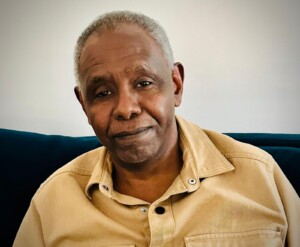Sudanese priest charged with apostasy – eight other Christians forced to return to Islam
A Sudanese priest has been charged with apostasy – and offence that carries the death penalty in the Islamic country. Eight other Christians have been forced to renounce their faith and return to Islam after alleged torture in custody.
 Christian women worshipping in a Sudanese church (File photo: barnabasfund.org)
Christian women worshipping in a Sudanese church (File photo: barnabasfund.org)
A Sudanese priest has been charged with apostasy – and offence that carries the death penalty in the Islamic country. Eight other Christians have been forced to renounce their faith and return to Islam after alleged torture in custody.
As previously reported by Radio Dabanga, agents of Sudan’s National Intelligence and Security Service (NISS) held 13 Christians from a home they share in Nyala on October 13.
The reason for the detention of the Christians in the South Darfur capital is unclear, World Watch Monitor (WWM) reported. A local source told the Christian watchdog that three of the detainees were later released, without an explanation.
In a statement yesterday, the African Centre for Justice and Peace Studies (ACJPS) calls upon the Sudanese government to urgently investigate the reported torture and ill-treatment of 9 Christian citizens who were detained by the National Intelligence and Security Services on allegations of apostasy. The ACJPS further called on Sudan to: drop the pending apostasy charges against the Darfuri priest; ensure the respect for religious rights and guarantee individual’s freedom of religious creed and worship as provided for under the Interim National Constitution, 2005 and international human rights treaties to which Sudan is a state party to.
Forced to renounce Christianity
The ACJPS statement says that nine Darfur Christians who were not released immediately , originally from Darfur, were detained for five days. On 21 October 2018, 8 of the 9 Darfuri Christians were released after they renounced Christianity and announced Islam. Before their release, they were charged with the offence of public disturbance under Article 77 of the Sudanese Criminal Act of 1991. ACJPS has their names on file. The remaining detainee, a Priest, was charged with apostasy under Article 126 of the Sudanese Criminal Act of 1991 after he refused to return Islam. He was released on bail on 22 October 2018.
It is reported that whilst in detention, they were subjected to torture and ill-treatment. According to information received, the arrested persons were beaten with hose pipes, slapped, kicked and boxed. As a result of the ill-treatment, four of them sustained serious injuries. They are having difficulty in walking and two are currently passing out blood from their private parts. Arrangements are being made to have them transferred from Nyala to Khartoum for further treatment.
ACJPS remains concerned about the provision of the crime of apostasy and the provision of the death penalty as punishment for those found guilty of apostasy. ACJPS is further concerned discriminatory application of legislation by the authorities against Sudanese non-Muslims. ACJPS condemns the use of the death penalty in all cases and calls on the government of Sudan to respect the right to freedom of religion and abolish the crime of apostasy.
The UN Human Rights Committee has recommended that Sudan abolish the crime of apostasy given its incompatibility with right to freedom of thought, conscience and religion as guaranteed under the International Covenant on Civil and Political Rights to which Sudan is a state party to.
ACJPS calls on the government of Sudan to immediately ensure an effective, independent and impartial investigation into the allegations of torture and ill-treatment and hold those responsible to account.
ACJPS recently published a report on the implementation of the crime of apostasy in Sudan.
Freedom of religion
Freedom of religion is sanctioned by the Sudanese Constitution. However, the Sudanese Minister of Guidance and Endowments announced in April 2013 that no new licenses would be granted for building new churches in the country. He pointed to the return of many South Sudanese Christian refugees to their country, after the secession of the south in July 2011.
Since that time, reports concerning discrimination and persecution of Christians, demolition of church buildings and schools increased.
In September 2014, a clergyman told Radio Dabanga that the Sudanese Council of Churches did receive many complaints about discrimination of Christians. “They are systematically obstructed to visit their churches.”
In an article in October 2017, John Prendergast and Ian Schwab of the Enough Project highlighted a pattern of persecution of religious minorities throughout the country.
In July 2017, the Ministry of Education instructed Christian schools in the country to observe the weekend on Friday and Saturday, and operate schools on Sunday. A number of church buildings were confiscated and demolished, and at least eight church leaders were detained that year. In February 2018, riot police demolished the Evangelical Church in El Haj Yousif district in Khartoum North because “the church plot had been sold”.











 and then
and then